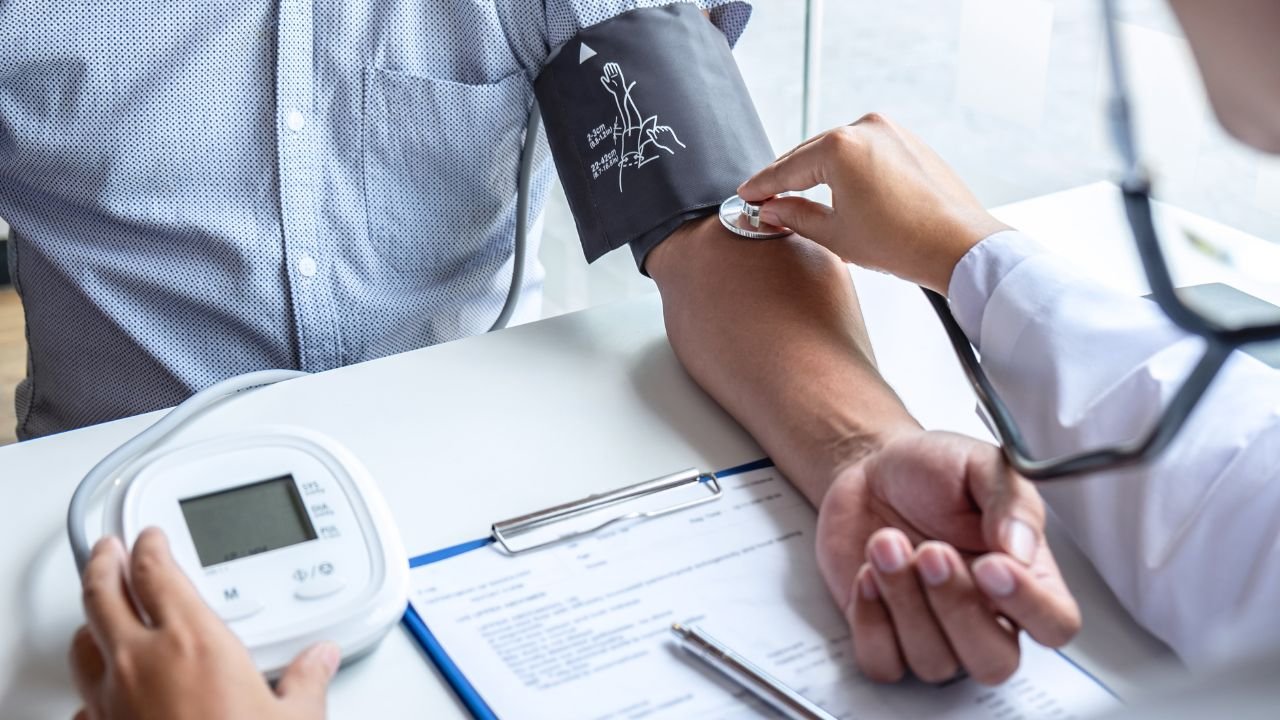
Millions of people start their days or power late-night labor with coffee, which is a daily ritual. Caffeine in coffee may help to increase alertness, improve focus, and even elevate your mood; hence it is not only a pick-me-up. However, it also affects the body by accelerating heart rate or inducing jitters if you take too much. People wonder most how coffee and blood pressure are connected.
Does your morning espresso improve your statistics or is it safe to sip? Let’s explore how coffee (especially its caffeine) can impact blood pressure and what you need to know to enjoy your cup without guilt. The primary component of coffee, caffeine, stimulates the central nervous system, which may temporarily increase blood pressure and heart rate.
Studies reveal that for some people coffee can briefly raise blood pressure, often for several hours. The effect varies, though. While those sensitive to caffeine or fresh to coffee may feel a larger surge, frequent coffee drinkers might not see much difference. Particularly if you are controlling medical problems or are just interested in how your daily brew affects you, knowing coffee and blood pressure is critical.
What Is Blood Pressure?
As your heart pumps, blood pressure gauges the force of blood pressing against artery walls. Normal blood pressure is around 120/80 mmHg. High blood pressure could harm the heart, raising the chance of stroke or cardiac arrest. Low blood pressure can make you dizzy or fainting.

Overall health depends critically on keeping blood pressure in check: diet and drinks help to influence lifestyle. Knowing how coffee fits into your schedule is critical if you are tracking your levels. Smart decisions result from consistent checkups and monitoring your body’s reactions to coffee.
Coffee and Blood Pressure
Coffee and High Blood Pressure
Coffee can be a little difficult for people with high blood pressure. Particularly if you are not a habitual drinker, caffeine can briefly increase blood pressure. An American Heart Association study discovered caffeine increases systolic blood pressure by around 5 to 10 mm Hg for a few hours.
If you’re managing high blood pressure, you don’t have to ditch coffee completely. Regular drinkers often develop a tolerance, so the blood pressure spike lessens over time. Still, you should monitor your consumption closely. Combine your coffee with a good diet and exercise.
It can keep blood pressure under control. If you’re not sure about coffee’s effects on your blood pressure, always consult your doctor.
Coffee and Low Blood Pressure
Low blood pressure and coffee, on the other hand, can occasionally be a beneficial combination. Should you experience low blood pressure, which could result in weariness or dizziness, the energizing impact of caffeine may offer you a brief lift. In those with low levels, a little research found caffeine can mildly increase blood pressure and so assist them to feel more awake. Some, therefore, prefer coffee.
But keep your coffee and low blood pressure under control. Too much caffeine might overstimulate your body, causing tremors or maybe a crash later. Stick to modest doses and watch your reaction if you depend on coffee to help control low blood pressure symptoms. One better approach to stabilize your levels is by consuming coffee with adequate hydration and well-balanced meals.

Effects Of Different Types Of Coffee On Blood Pressure
When exploring blood pressure and coffee, the type of coffee matters. Black coffee, with its high caffeine content, has the most noticeable effect. A single 8-oz cup of black coffee can have 80-100 mg of caffeine, potentially causing a temporary blood pressure increase, especially in sensitive folks.
Black coffee and blood pressure spikes are usually short-lived, but if you’re sensitive, you might feel it more. Drinking it slowly and in moderation can help. Decaf coffee is a gentler option for blood pressure and decaf coffee concerns. With only 2-5 mg of caffeine per cup, decaf is less likely to affect blood pressure.
Milk coffee, like lattes or cappuccinos, dilutes caffeine with milk, slightly softening the impact. Cold coffee, like iced lattes, has similar caffeine levels to hot black coffee unless it’s decaf. Blood pressure and decaf coffee is often the safest bet for those watching their numbers, but even milk or cold coffee can be fine in moderation.
Final Thoughts
Though coffee is a much loved element of life, some discretion helps a great deal when it comes to coffee and blood pressure. Keep things safe by sticking to 1-2 cups daily (about 200–400 mg of caffeine), as advised by the Mayo Clinic.
Too much caffeine can increase blood pressure surges, especially if you have sensitive or high blood pressure. To avoid additional health hazards, limit added sugar to 6-9 teaspoons daily. Always see your doctor if you are controlling blood pressure issues.
Observe your body’s response to coffee carefully. Decaffeinate or cut back if you detect jitters or an elevated heart rate. To prevent sleeping difficulties, couple coffee with a balanced diet, keep hydrated, and refrain from drinking late in the day. Controlling your coffee consumption lets you savor that morning beverage without worrying about coffee side effects and blood pressure.

Frequently Asked Questions (FAQs)
Does coffee or caffeine raise blood pressure?
Coffee or caffeine raise blood pressure. There are some nutrients like antioxidants that can lead to high blood pressure.
Is 140 over 70 a good blood pressure?
140/70 is not a good range of blood pressure. Generally, less than 120/80 mm Hg is considered as a normal blood pressure.
What drinks increase blood pressure?
Coffee, tea, energy drinks, and soda all have caffeine, a compound that is known to increase blood pressure.
One Comment
Leave A Comment




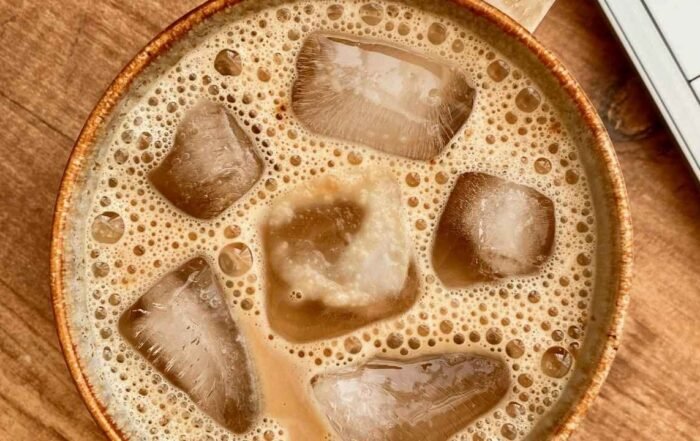

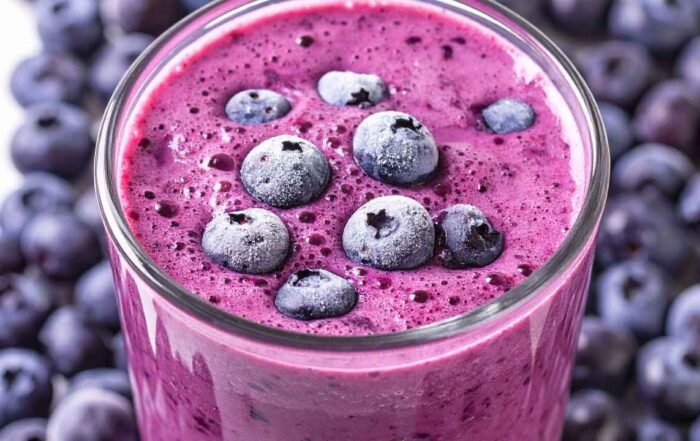
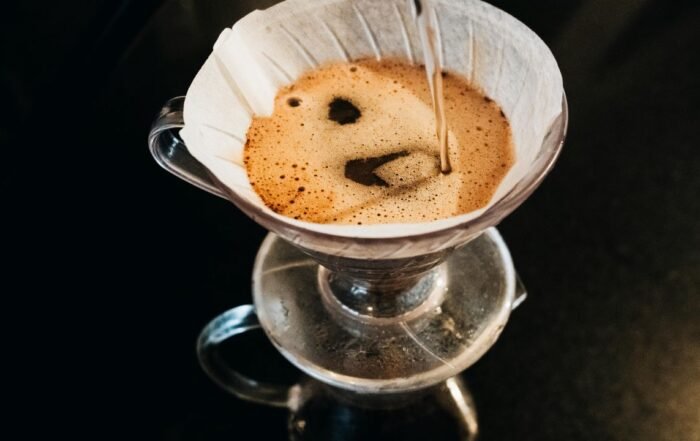
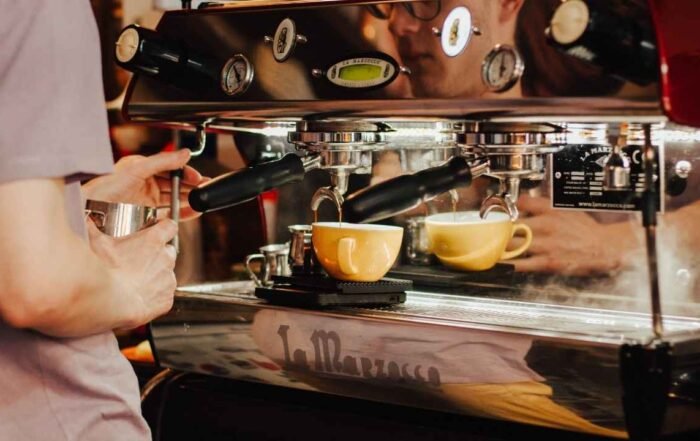

[…] they wish to sip a soda without remaining awake all night, many people question the amount of caffeine in root beer. Parents are particularly concerned about providing their children caffeinated drinks, […]